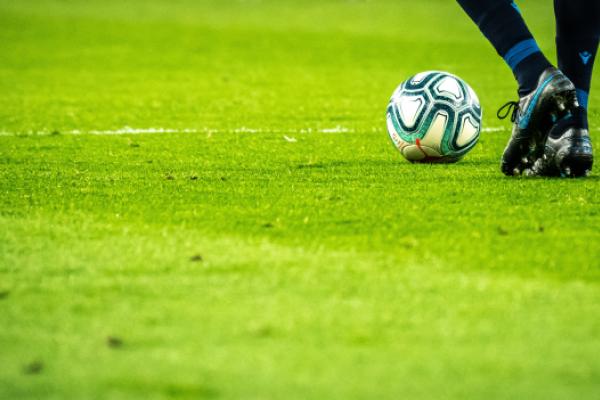Billions of dollars will continue to flow into Italian football
While many believe Italy's Serie A (Italy's top football league) is a well-oiled machine, the Italian league lags behind Spain, Germany, France and England since the end of the 1990s. This both in terms of international performance and in terms of new investments and innovation. Domestically, Italian football has lost some of its luster over the past 10 years, as for the second consecutive term the Azzurri (this is how the Italian football team is known) failed to qualify for the World Cup. Missing the Qatar World Cup at the end of 2022 represents financial losses that could range from 10 to 15 billion dollars. These are losses that Italian football cannot afford. To top it all off, the fall last week of the Italian government, led by Prime Minister Mario-Draghi, one of the most respected international technocrats, represents another financial blow for Italy, as billions of dollars in European Union may never reach Italy. While this crisis will isolate Italy within the EU and make Italian borrowing more expensive, it will accelerate investment and M&A activity in the football sector as football assets become cheaper. Mergers and acquisitions are expected to accelerate in the three Italian football leagues, namely Serie A, Serie B and Serie C.
As a reminder, to date, 22 of the teams in the Serie A, Serie B and Serie C leagues (out of a total of 100 teams) are controlled by North Americans, British, French , Chinese and Arab investors. The latest acquisition is being formalized as we speak and includes Abu Dhabi Price Mansour as lead investor. He acquired the team from Palermo (the capital of Sicily) for a deal of 12 million dollars. This acquisition adds another football team (after Manchester City) to the emirate's empire, strategically placing the Gulf country as one of the leading investors in international sport. What made these acquisitions particularly attractive was the overall underperformance of these teams (both operationally and financially), their attractive brand equity and the unique overall position of football in Italy, which does not is no competing sport. More importantly, these teams were underperforming financially and had huge potential for revenue growth if strategic investors were secured and fan loyalty fully monetized like in American sports.
Future investmentWhile the worst of the crisis of the last four years (China-US trade wars, Covid-19, Russia's war in Ukraine, inflation and recession) is behind us, Italy is the G7 economy to have suffered the most severe economic decline and balance sheet crisis. The football sector has also been a victim and has multiplied negotiations with international investors, bond issuers and strategic partners to seek to revitalize their financing and the performance of their teams. The pandemic has continued to drive prices down for most clubs in Italy, also given their high level of debt and lack of new sources of revenue. Moreover, the fact that Italian clubs have underperformed over the last 10 years makes this investment even more attractive for international buyers. When thinking about acquisitions for a football team, you have to think differently. Billionaires and private equity funds are buying teams to boost their brand image, as well as to break into the complicated Italian market, where with the right political connections you can make a killing. Bezos' supposed interest in acquiring the Napoli football team, for example, will be coupled with acquisitions of ports and other strategic logistical infrastructure. Similarly, North American owners of Florence, Venice and Rome are looking to capitalize on the brand value and history of these cities, which are among the most visited cities in the world with over 30 million visitors combined per year.
What are the main football stocks?Only three Italian football clubs have listed shares that you can buy. It's not just football clubs, it's big business. Juventus, Roma and Lazio are listed on Piazza Affari, the Italian stock exchange. In 2021, while Roma and Lazio shares were flat, losing 1.6 and 4.1% respectively, Juventus shares crashed, losing nearly 50% of its value. This crash was mainly attributed to the failure of the Super-European League, which Juventus strongly supported. The decline continued in 2022 when Juventus were knocked out of the Champions League. This took Juventus' market capitalization from €874 million at the start of 2021 to €455 million. As for Roma and Lazio, both stocks performed well at the end of the 2020-2021 football season in May when the new super coaches, Mourinho and Sarri were announced. Equity performance stabilized later in the year...

While many believe Italy's Serie A (Italy's top football league) is a well-oiled machine, the Italian league lags behind Spain, Germany, France and England since the end of the 1990s. This both in terms of international performance and in terms of new investments and innovation. Domestically, Italian football has lost some of its luster over the past 10 years, as for the second consecutive term the Azzurri (this is how the Italian football team is known) failed to qualify for the World Cup. Missing the Qatar World Cup at the end of 2022 represents financial losses that could range from 10 to 15 billion dollars. These are losses that Italian football cannot afford. To top it all off, the fall last week of the Italian government, led by Prime Minister Mario-Draghi, one of the most respected international technocrats, represents another financial blow for Italy, as billions of dollars in European Union may never reach Italy. While this crisis will isolate Italy within the EU and make Italian borrowing more expensive, it will accelerate investment and M&A activity in the football sector as football assets become cheaper. Mergers and acquisitions are expected to accelerate in the three Italian football leagues, namely Serie A, Serie B and Serie C.
As a reminder, to date, 22 of the teams in the Serie A, Serie B and Serie C leagues (out of a total of 100 teams) are controlled by North Americans, British, French , Chinese and Arab investors. The latest acquisition is being formalized as we speak and includes Abu Dhabi Price Mansour as lead investor. He acquired the team from Palermo (the capital of Sicily) for a deal of 12 million dollars. This acquisition adds another football team (after Manchester City) to the emirate's empire, strategically placing the Gulf country as one of the leading investors in international sport. What made these acquisitions particularly attractive was the overall underperformance of these teams (both operationally and financially), their attractive brand equity and the unique overall position of football in Italy, which does not is no competing sport. More importantly, these teams were underperforming financially and had huge potential for revenue growth if strategic investors were secured and fan loyalty fully monetized like in American sports.
Future investmentWhile the worst of the crisis of the last four years (China-US trade wars, Covid-19, Russia's war in Ukraine, inflation and recession) is behind us, Italy is the G7 economy to have suffered the most severe economic decline and balance sheet crisis. The football sector has also been a victim and has multiplied negotiations with international investors, bond issuers and strategic partners to seek to revitalize their financing and the performance of their teams. The pandemic has continued to drive prices down for most clubs in Italy, also given their high level of debt and lack of new sources of revenue. Moreover, the fact that Italian clubs have underperformed over the last 10 years makes this investment even more attractive for international buyers. When thinking about acquisitions for a football team, you have to think differently. Billionaires and private equity funds are buying teams to boost their brand image, as well as to break into the complicated Italian market, where with the right political connections you can make a killing. Bezos' supposed interest in acquiring the Napoli football team, for example, will be coupled with acquisitions of ports and other strategic logistical infrastructure. Similarly, North American owners of Florence, Venice and Rome are looking to capitalize on the brand value and history of these cities, which are among the most visited cities in the world with over 30 million visitors combined per year.
What are the main football stocks?Only three Italian football clubs have listed shares that you can buy. It's not just football clubs, it's big business. Juventus, Roma and Lazio are listed on Piazza Affari, the Italian stock exchange. In 2021, while Roma and Lazio shares were flat, losing 1.6 and 4.1% respectively, Juventus shares crashed, losing nearly 50% of its value. This crash was mainly attributed to the failure of the Super-European League, which Juventus strongly supported. The decline continued in 2022 when Juventus were knocked out of the Champions League. This took Juventus' market capitalization from €874 million at the start of 2021 to €455 million. As for Roma and Lazio, both stocks performed well at the end of the 2020-2021 football season in May when the new super coaches, Mourinho and Sarri were announced. Equity performance stabilized later in the year...
What's Your Reaction?






















